- With standard equipment
- With safety pack
Find more information in the General Comments section of the assessment
Find more information in the Rating Validity tab of the assessment
- See More
- See More
- See More
- See More
- Good
- Adequate
- Marginal
- Weak
- Poor
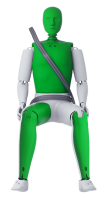 Passenger
Passenger
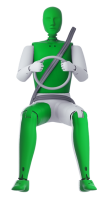 Driver
Driver
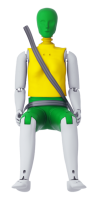 Rear Passenger
Rear Passenger
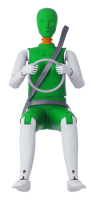 Driver
Driver
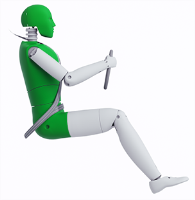 Car
Car
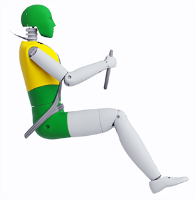 Pole
Pole
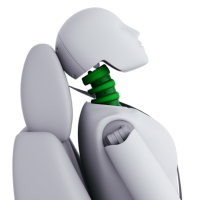 Rear Seat
Rear Seat
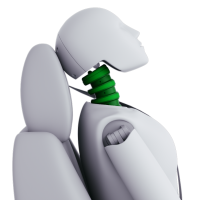 Front Seat
Front Seat
-
Approaching a stationary car: Left Offset
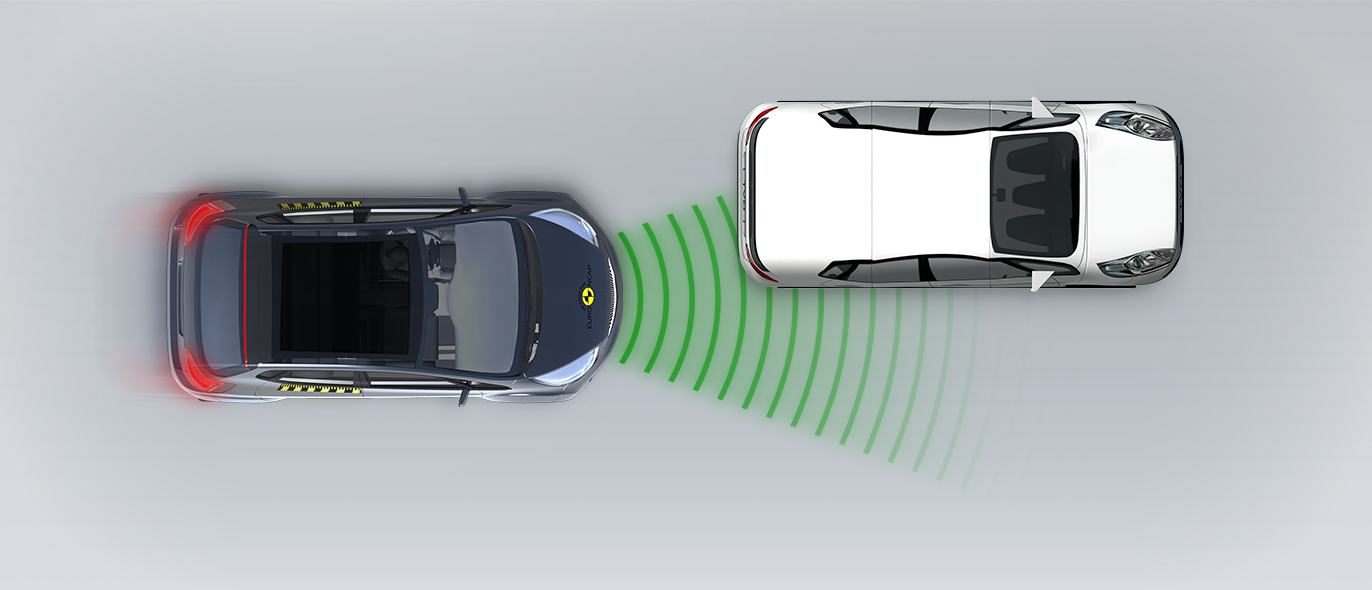
-
Approaching a stationary car: No Offset
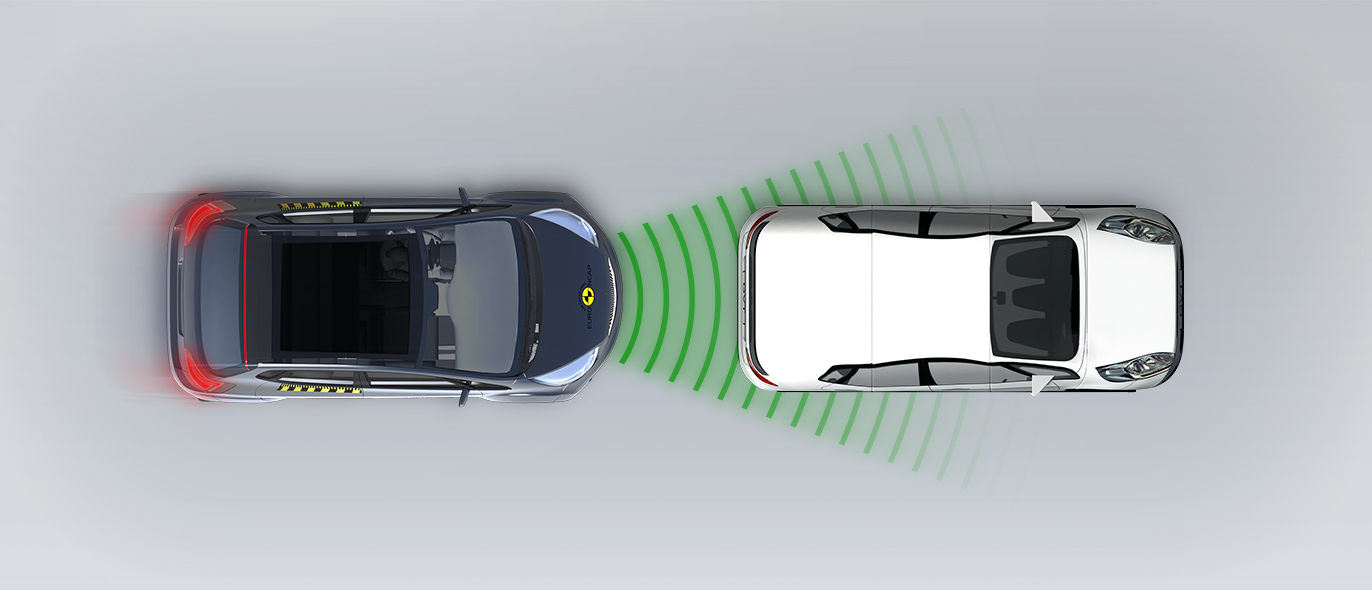
-
Approaching a stationary car: Right Offset
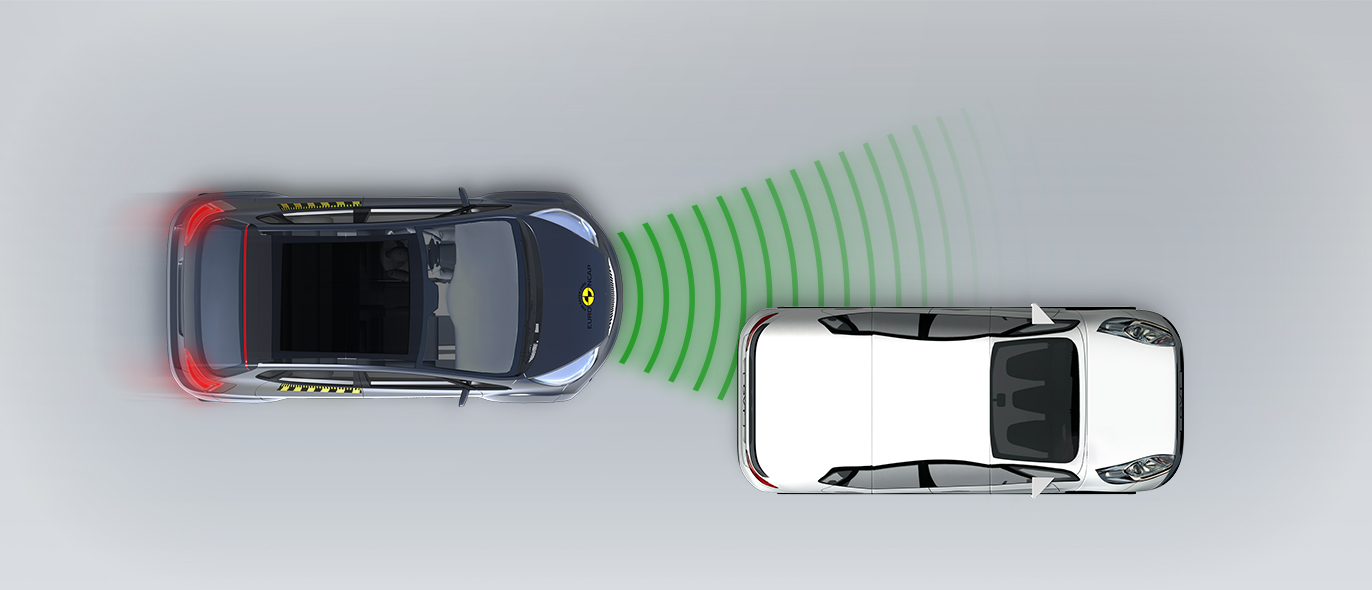
- Good
- Adequate
- Marginal
- Weak
- Poor
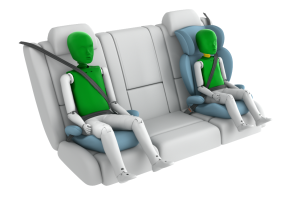
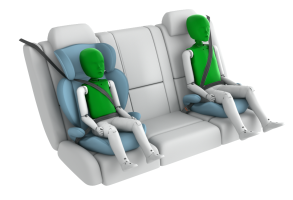
Passenger
outboard
center
outboard *
Fitted to the vehicle as standard
Not fitted to the test vehicle but available as option
Not Available
-
i-Size CRS
-
ISOFIX CRS
-
Universal Belted CRS
Easy
Difficult
Safety critical
Not allowed
| Seat Position | ||||||
|---|---|---|---|---|---|---|
| Front | 2nd row | 3rd row | ||||
| Passenger | Left | center | Right | Left | Right | |
| Maxi Cosi 2way Pearl & 2wayFix (rearward) (iSize) | ||||||
| Maxi Cosi 2way Pearl & 2wayFix (forward) (iSize) | ||||||
| BeSafe iZi Kid X2 i-Size (iSize) | ||||||
| BeSafe iZi Flex FIT i-Size (iSize) | ||||||
| Maxi Cosi Cabriofix & FamilyFix (ISOFIX) | ||||||
| BeSafe iZi Kid X4 ISOfix (ISOFIX) | ||||||
| Britax Römer Duo Plus (ISOFIX) | ||||||
| Britax Römer KidFix XP (ISOFIX) | ||||||
| Maxi Cosi Cabriofix (Belt) | ||||||
| Maxi Cosi Cabriofix & EasyBase2 (Belt) | ||||||
| Britax Römer King II LS (Belt) | ||||||
| Britax Römer KidFix XP (Belt) | ||||||
Easy
Difficult
Safety critical
Not allowed
In the frontal offset test, readings of tensile forces indicated adequate protection of the neck of the 6-year dummy. Otherwise, protection of critical body areas was good for both dummies. In the side barrier test, protection of all critical body areas was good and the car scored maximum points. The front passenger airbag is automatically disabled when a rearward-facing child restraint is put in that seating position. Tests showed that the system worked robustly and the system was rewarded. All of the child restraint types for which the car is designed could be properly installed and accommodated.
- Good
- Adequate
- Marginal
- Weak
- Poor
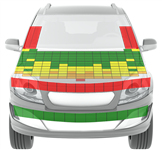
Head Impact 19.8 Pts
Pelvis Impact 0.3 Pts
Leg Impact 6.0 Pts
| System Name | Active Brake Assist | ||
| Type | Auto-Brake with Forward Collision Warning | ||
| Operational From | 7 km/h | ||
| PERFORMANCE | | |||
-
Approaching a crossing cyclist
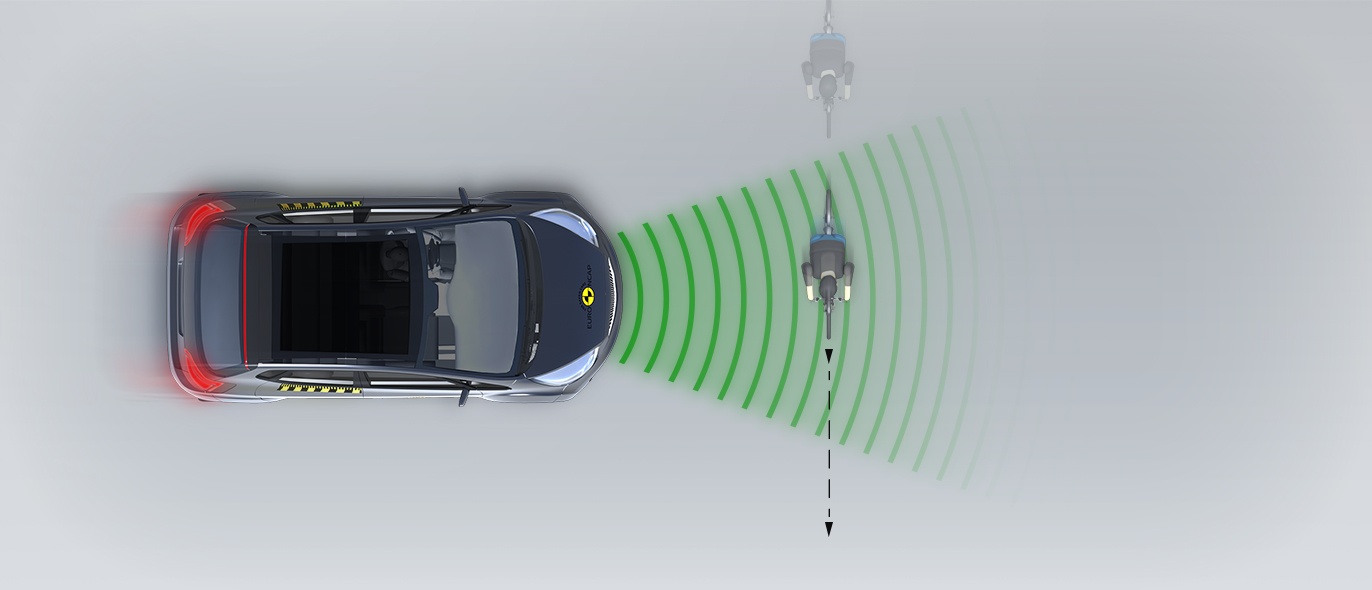
-
Cyclist along the roadside
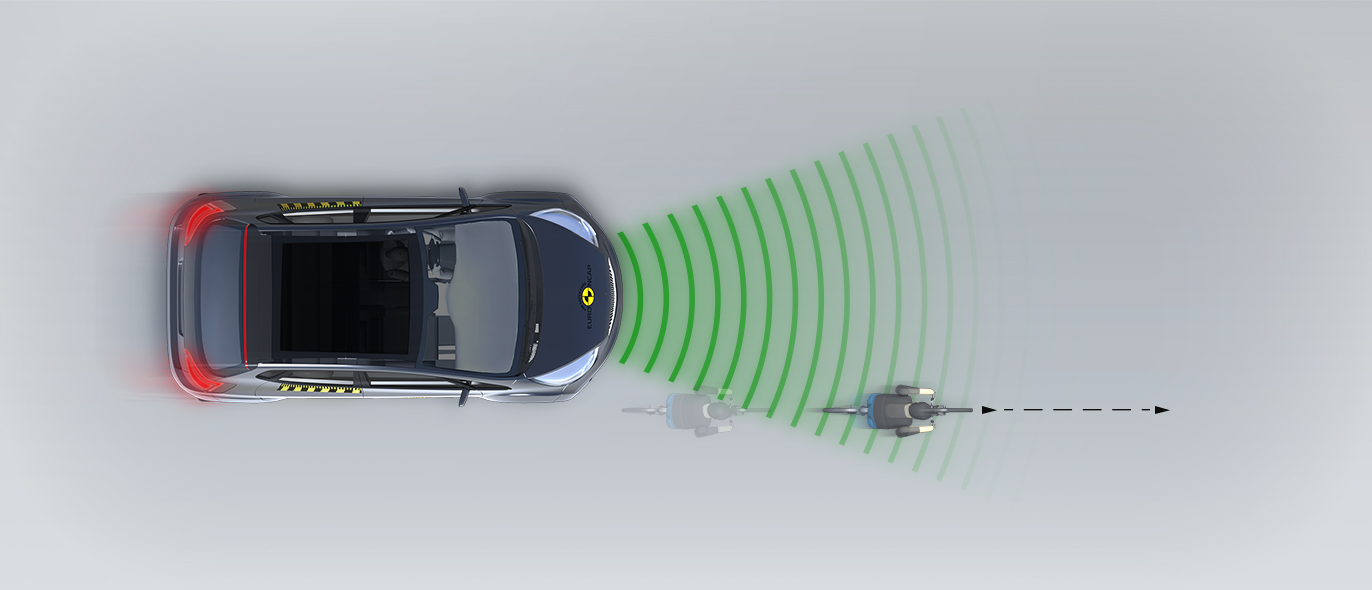
The car has an active, deployable bonnet. Sensors in the bumper detect when a pedestrian has been struck and actuators lift the bonnet surface to provide greater clearance to the stiff structures in the engine compartment. Mercedes-Benz showed that the system worked robustly for different pedestrian statures and across a wide range of speeds, so tests were performed with the bonnet in the raised position. Protection was good or adequate at almost all test locations on the bonnet. The bumper provided good protection to pedestrians' legs at all test positions. However, the protection provided to the pelvis area was poor and no points were scored in this part of the assessment. The AEB system performed well in tests both of its pedestrian detection and its response to cyclists, with collisions avoided in nearly all test scenarios.
- Good
- Adequate
- Marginal
- Weak
- Poor
| System Name | Speed Limit Assist |
| Speed Limit Information Function | Camera based |
| Speed Control Function | System advised (accurate to 5km/h) |
| Applies To | All Seats | ||
| Warning | Driver Seat | Front Passenger(s) | Rear Passenger(s) |
| Visual | |||
| Audible | |||
| Occupant Detection | |||
|
|||
| System Name | Active Lane Keeping Assist |
| Type | ELK + LKA (including LDW) |
| Operational From | 60 km/h |
| Performance | |
| Emergency Lane Keeping | |
| Lane Keep Assist | |
| Human Machine Interface | |
| System Name | Active Brake Assist | |||
| Type | Autonomous Emergency Braking and Forward Collision Warning | |||
| Operational From | 7 km/h | |||
The AEB system performed well in tests of its functionality at highway speeds. A lane assistance system helps to prevent inadvertent drifting out lane by warning the driver and gently applying some corrective steering. The system also intervenes more aggressively in some more critical situations. A camera is used to determine the local speed limit. This information is presented to the driver who can choose to let the limiter adapt the speed accordingly. The car has a seatbelt reminder system as standard for front and rear seats.
- Specifications
- Safety Equipment
- Videos
- Rating Validity
Specifications
Tested Model Mercedes-EQ EQB, electric
Body Type - 5 door SUV
Year Of Publication 2019
Kerb Weight 2090kg
VIN From Which Rating Applies - all EQBs
Class Small SUV
Safety Equipment
Note: Other equipment may be available on the vehicle but was not considered in the test year.
Fitted to the vehicle as standard
Fitted to the vehicle as part of the safety pack
Not fitted to the test vehicle but available as option or as part of the safety pack
Not available
Not applicable
Videos
Rating Validity
Find more information in the General Comments section of the assessment
The Mercedes-EQ EQB is structurally comparable to the Mercedes-Benz GLB tested in 2019 and shares the same level of safety equipment. Additional tests have been done where the performance of the cars might differ but, otherwise, test results are taken from the GLB.
 Share
Share
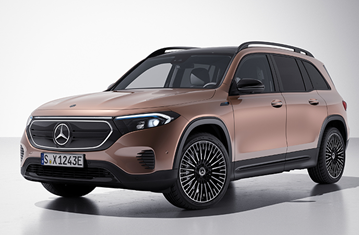

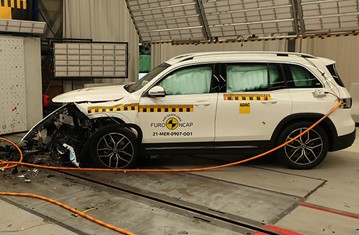
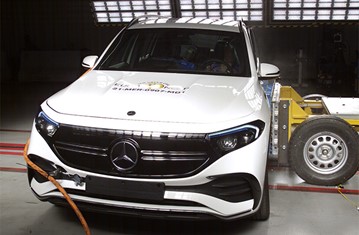


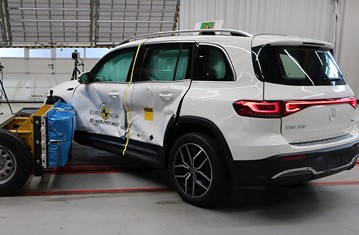
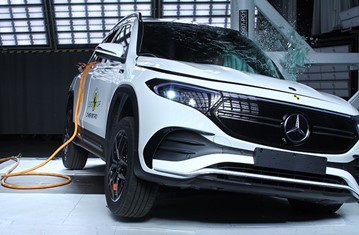
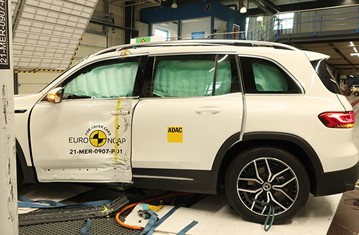


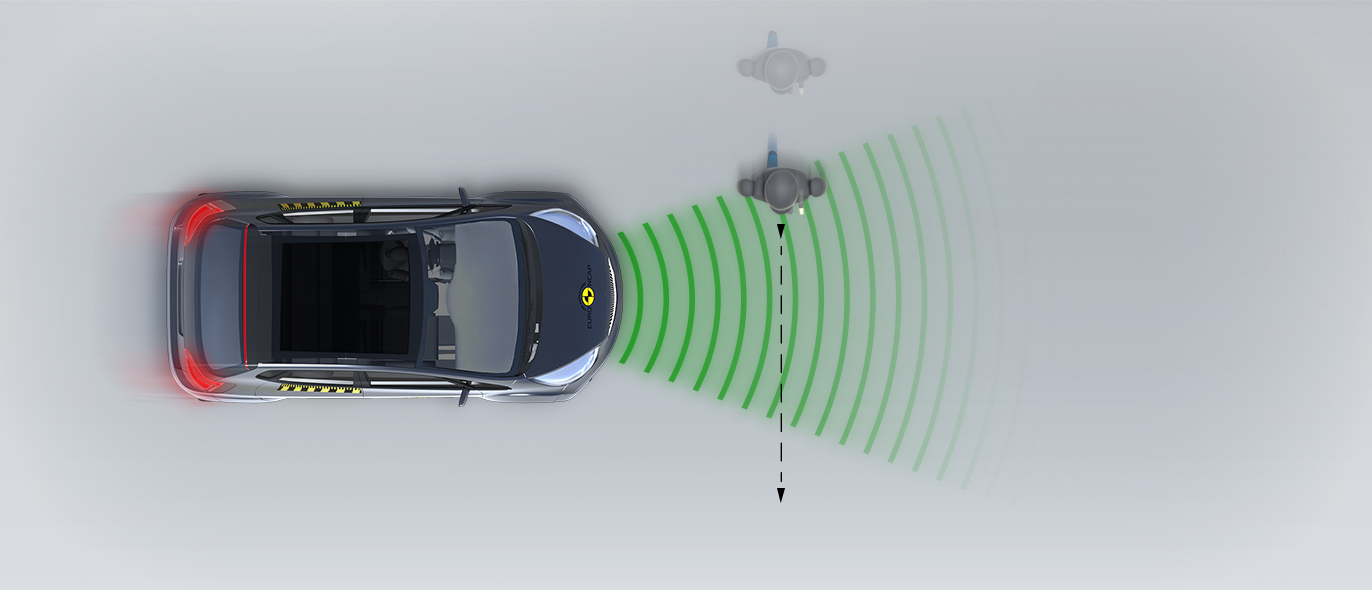
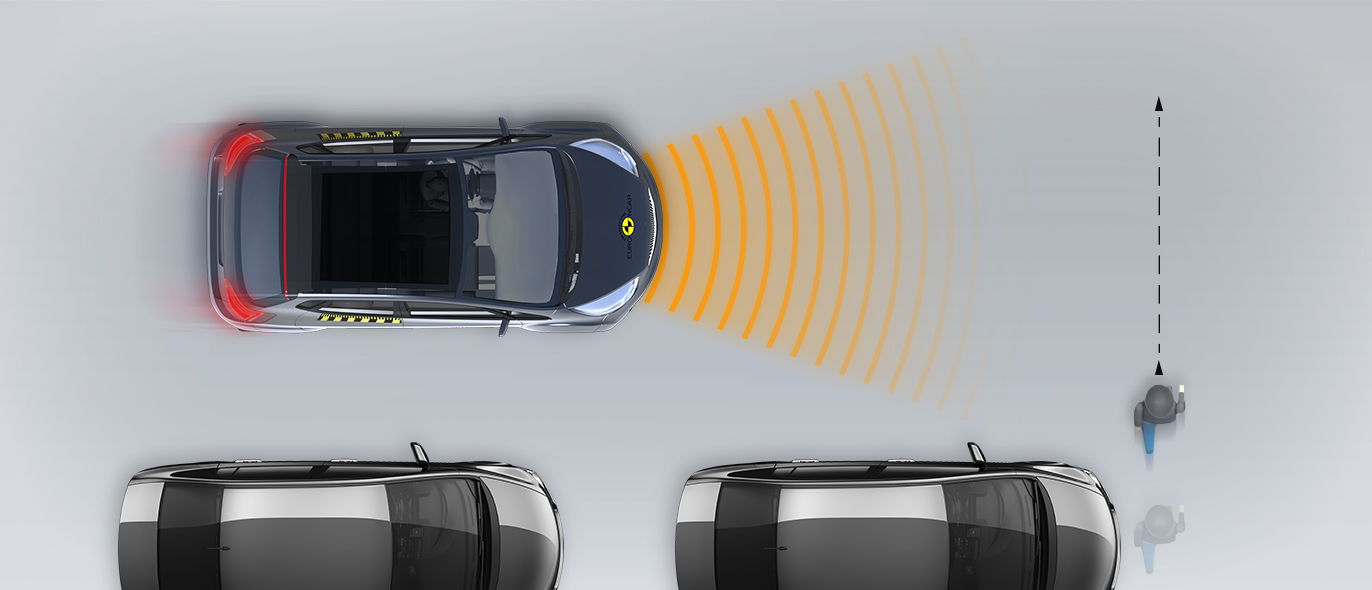
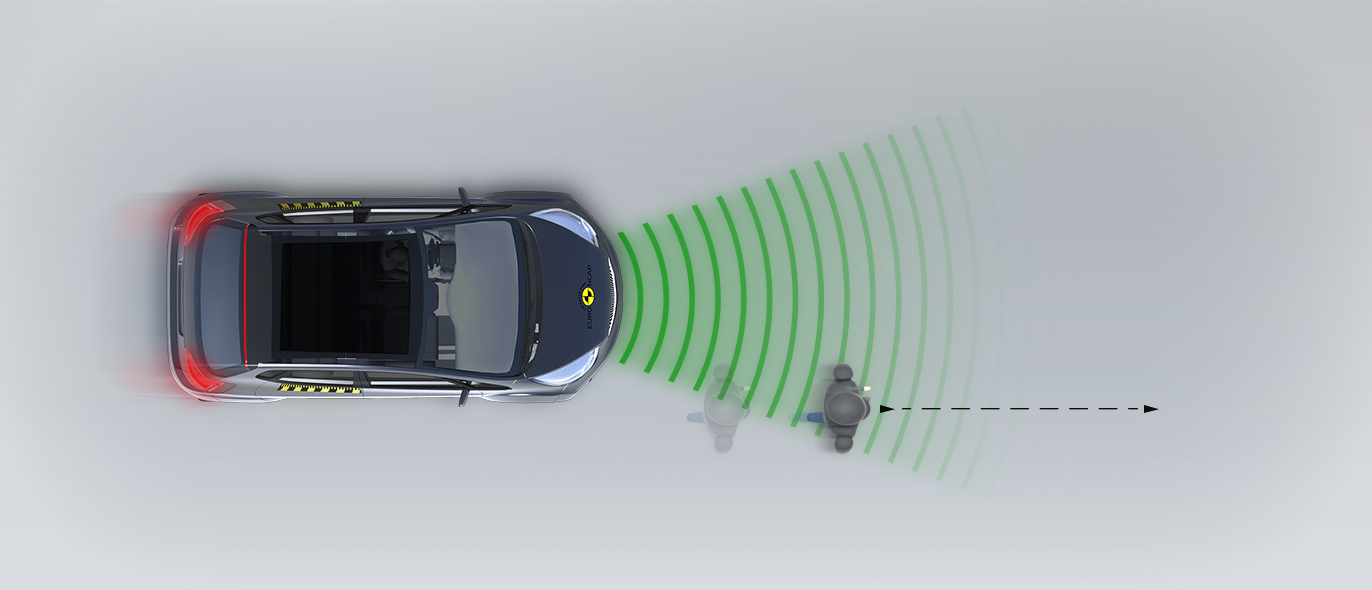


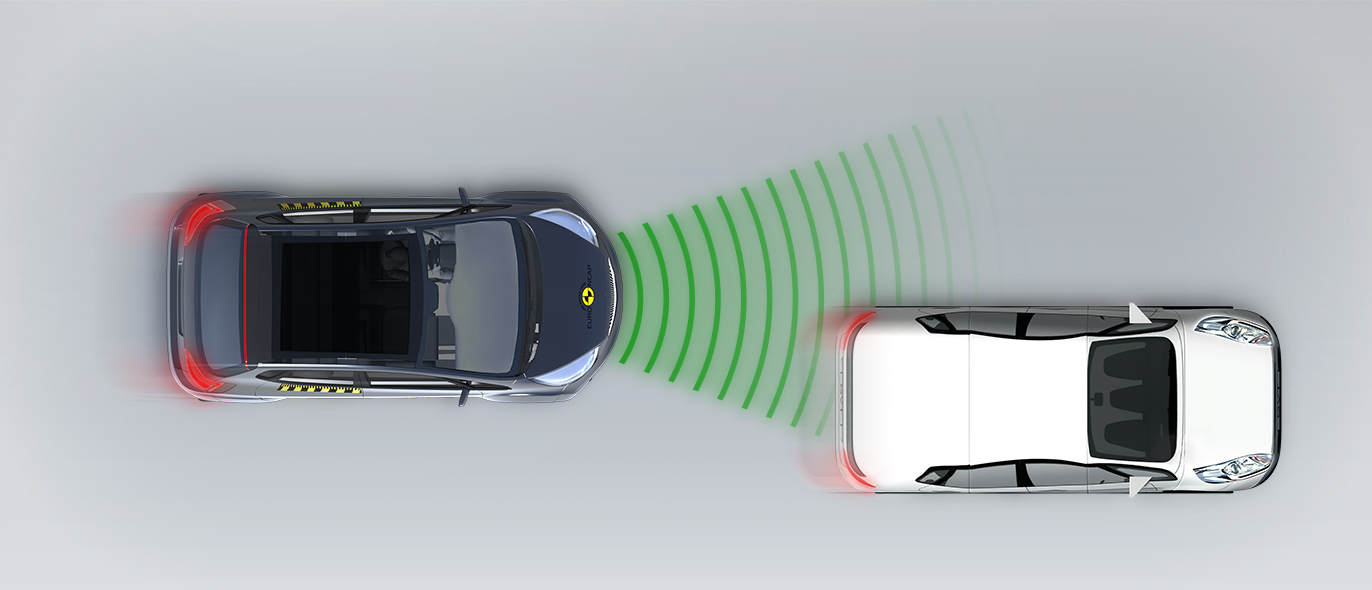
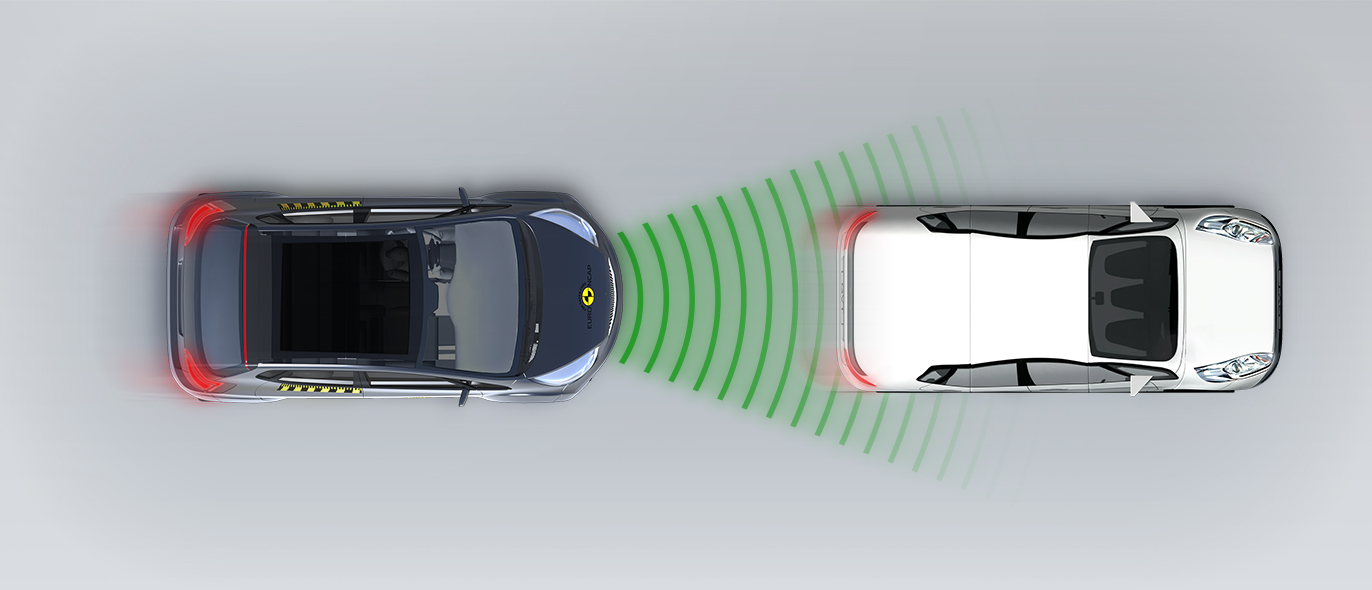
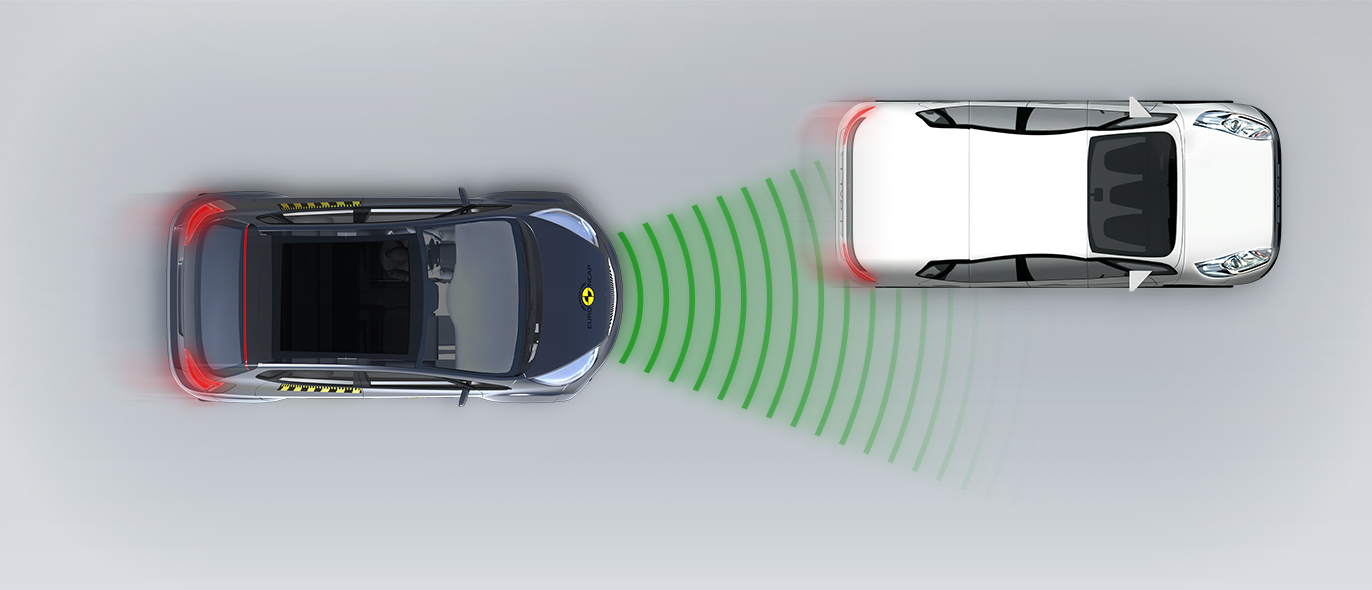

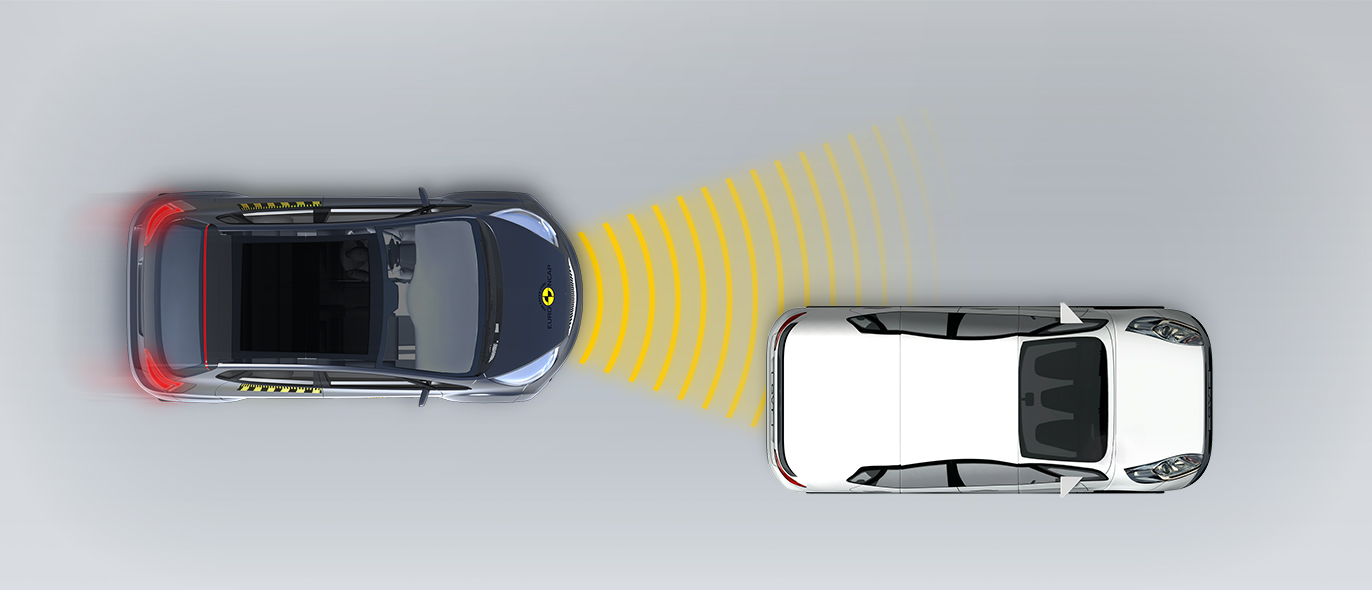
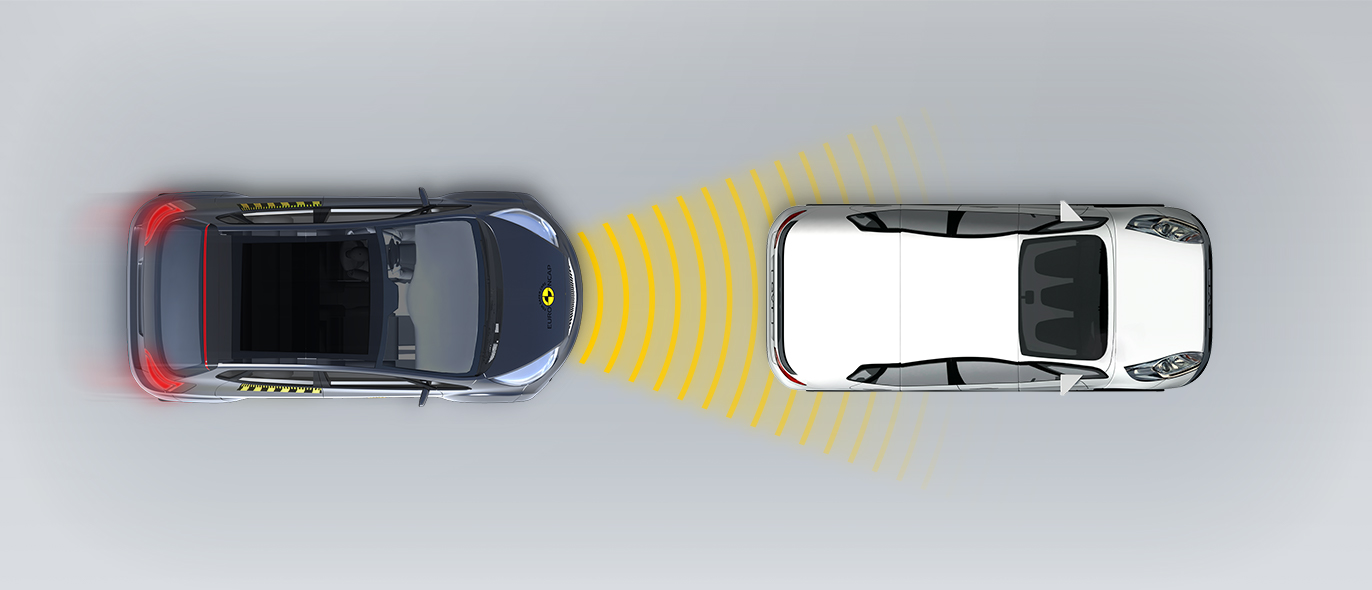
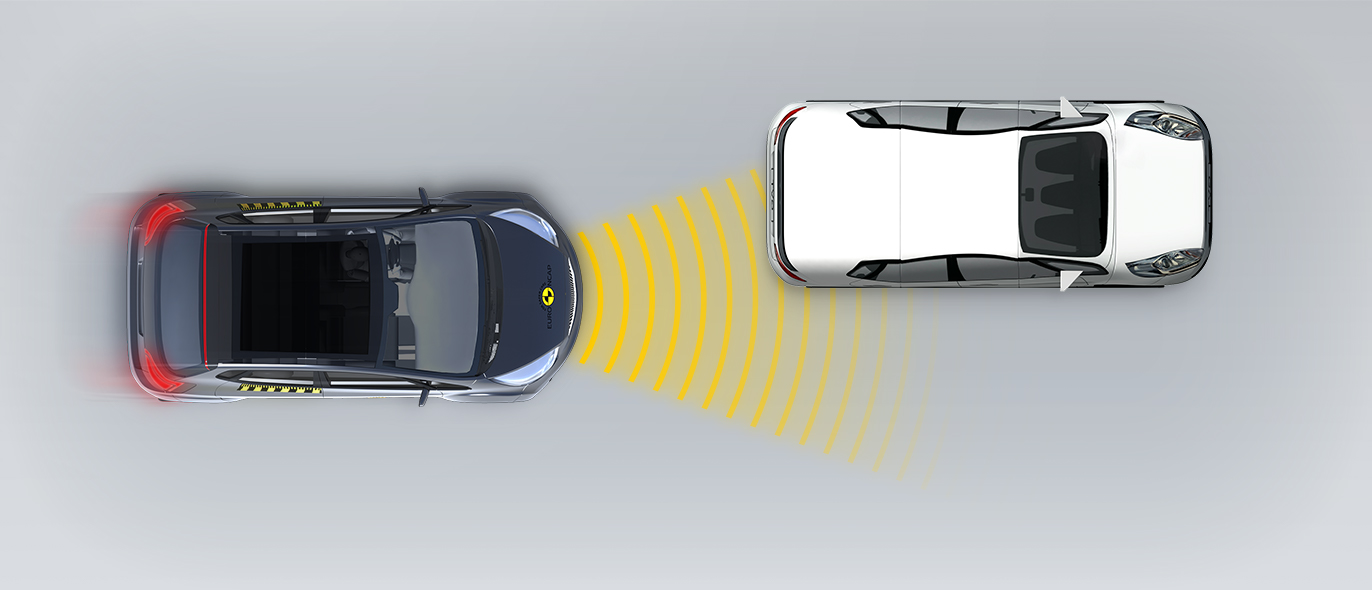


The passenger compartment remained stable in the frontal offset test. Dummy readings indicated good protection of all critical body areas of both the driver and passenger, and the car scored maximum points in this test. In the full-width rigid barrier test, protection of all critical body regions was good or adequate with the exception of the neck of the driver, for which dummy readings of tensile forces indicated a marginal level of protection. In the side barrier test, protection of all critical body areas was good and maximum points were scored. In the more severe side pole test, dummy readings of rib compression indicated adequate protection for the chest, with other critical parts of the body being well protected. Tests on the front seats and head restraints demonstrated good protection against whiplash injuries in the event of a rear-end collision. A geometric assessment of the rear seats also indicated good whiplash protection. The standard-fit autonomous emergency braking (AEB) system performed well in tests of its functionality at the low speeds, typical of city driving at which many whiplash injuries occur.